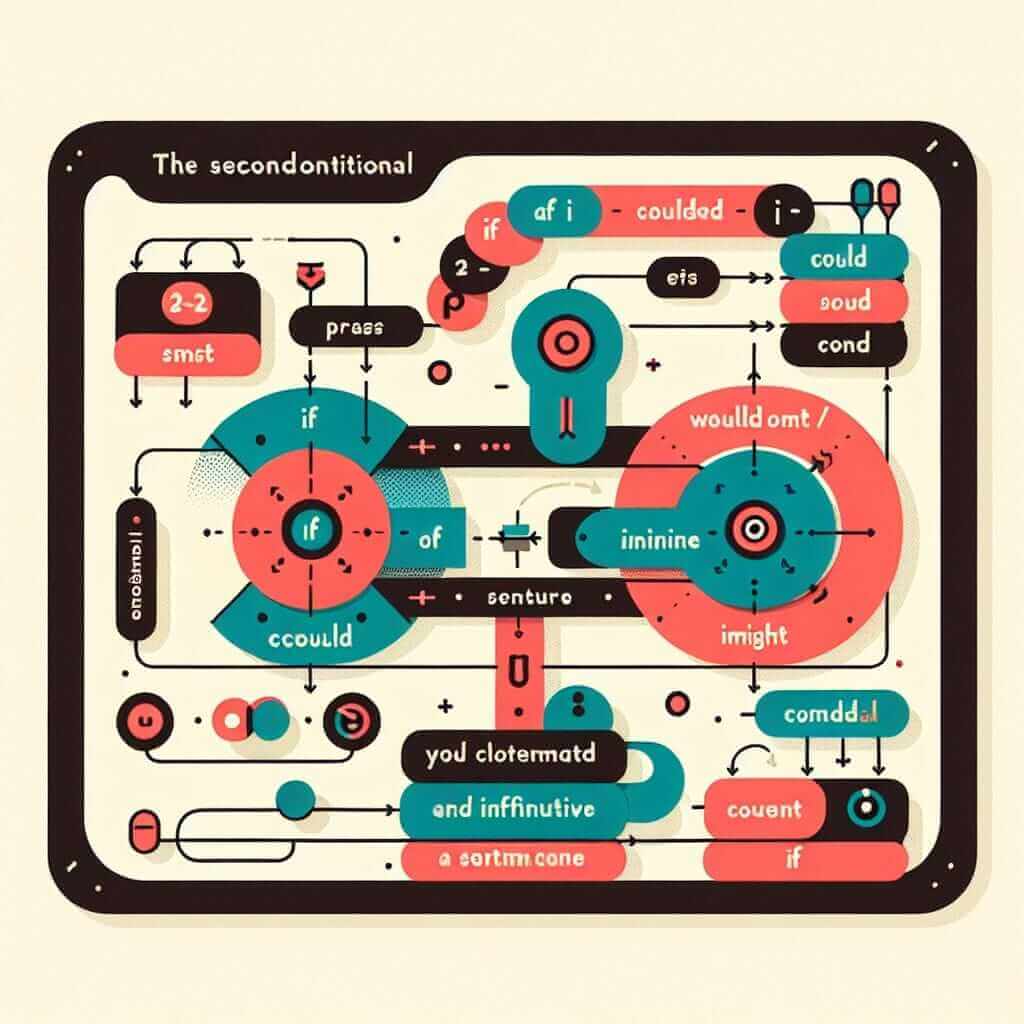Many IELTS candidates have heard the phrase “If I were you…” but struggle to use it correctly in their speaking and writing. This common English construction, known as the second conditional, is used to talk about hypothetical or unlikely situations and their results. Mastering it can significantly enhance your grammatical range and accuracy, ultimately boosting your IELTS band score.
Here are some examples of how the second conditional can be used in different sections of the IELTS exam:
Speaking:
- Examiner: What would you do if you won the lottery?
- Candidate: If I won the lottery, I would travel the world and learn new languages.
Writing Task 2:
- Some people believe that the government should provide free healthcare for all citizens. Others believe that individuals should be responsible for their own healthcare costs. Discuss both views and give your own opinion.
- If the government were to implement a free healthcare system, it could potentially lead to longer wait times for treatment.
Listening:
- (On a recording) The man says: “I’d love to join you for the concert, but I have a work deadline. If it weren’t for that, I’d definitely be there!”
In each of these examples, the second conditional is used to discuss hypothetical situations and their possible consequences. Now, let’s delve deeper into the form and function of this key grammatical structure.
Understanding the Second Conditional
Meaning and Usage
The second conditional is used to express unreal or improbable situations in the present or future. It allows us to imagine hypothetical scenarios and their outcomes. These situations are often contrary to reality or highly unlikely to occur.
Form and Structure
The second conditional follows a specific structure:
If + Past Simple, would + base verb
Example:
- If I had more time, I would learn to play the piano.
Breakdown:
- “If I had more time” sets up the hypothetical condition. Note the use of the past simple tense (“had”) even though we are talking about the present.
- “I would learn” expresses the result of that condition. We use “would” followed by the base form of the verb (“learn”).

Using the Second Conditional in IELTS
Speaking
In the IELTS Speaking test, using the second conditional allows you to demonstrate fluency and a wider range of grammar. You can use it to:
- Answer hypothetical questions: “If you could have any job in the world, what would it be?”
- Express your opinion on unreal situations: “If I were the president, I would focus on renewable energy.”
- Give advice: “If I were you, I would reconsider that decision.”
Writing Task 2
The second conditional is particularly useful in IELTS Writing Task 2 for:
- Discussing the potential consequences of different actions or policies: “If governments invested more in public transportation, it would reduce traffic congestion.”
- Presenting a balanced argument by exploring both sides of an issue: “On the one hand, if students have access to the internet for research, it can enhance their learning. On the other hand, if they are allowed unrestricted internet access, it could be distracting.”
- Offering solutions to problems: “If more people adopted a vegetarian diet, it could help to combat climate change.”
Listening and Reading
While you don’t need to produce the second conditional in the Listening and Reading sections, understanding its use is crucial for comprehension. You might encounter it in:
- Dialogues and conversations: Pay attention to how speakers use the second conditional to express their thoughts and opinions.
- Reading passages: Identify the use of the second conditional and its purpose within the text. This will help you understand the author’s arguments and viewpoints.
Mastering the Nuances: Tips for Higher Bands
To achieve a band score of 7 or higher, you need to showcase a sophisticated grasp of grammar. Here are some ways to use the second conditional effectively:
- Use a variety of modal verbs: Instead of just “would,” try using “could,” “might,” or “should” to add nuance and demonstrate a wider range of vocabulary:
- “If I had more free time, I could finally finish writing my novel.”
- “If she studied harder, she might pass the exam.”
- Incorporate conditional clauses at the beginning or end of sentences:
- “If I were in your shoes, I would apologize.“
- “I would buy that house in a heartbeat if I had the money.“
- Combine the second conditional with other grammatical structures:
- “Even if I had all the money in the world, I wouldn’t want to live forever.” (Second conditional + negative form)
- “If I were to win the lottery, the first thing I would do is quit my job.” (Second conditional + inversion for emphasis)
Common Mistakes to Avoid
Be mindful of these common errors when using the second conditional:
- Incorrect tense in the “if” clause: Using “would” instead of the past simple in the “if” clause is a frequent mistake:
- Incorrect: If I would have more time, I would learn to play the piano.
- Correct: If I had more time, I would learn to play the piano.
- Using “will” instead of “would” in the main clause:
- Incorrect: If I had more time, I will learn to play the piano.
- Correct: If I had more time, I would learn to play the piano.
- Forgetting to use the base form of the verb after “would”:
- Incorrect: If I were you, I would reconsidered that decision.
- Correct: If I were you, I would reconsider that decision.
Conclusion
The second conditional is a powerful tool for expressing hypothetical situations and their consequences. By understanding its form, meaning, and application in various IELTS tasks, you can significantly enhance your grammatical range and accuracy. Remember to practice using it regularly in your speaking and writing to build confidence and fluency. With consistent effort and a keen eye for detail, you can master this essential grammatical structure and achieve your desired IELTS band score.